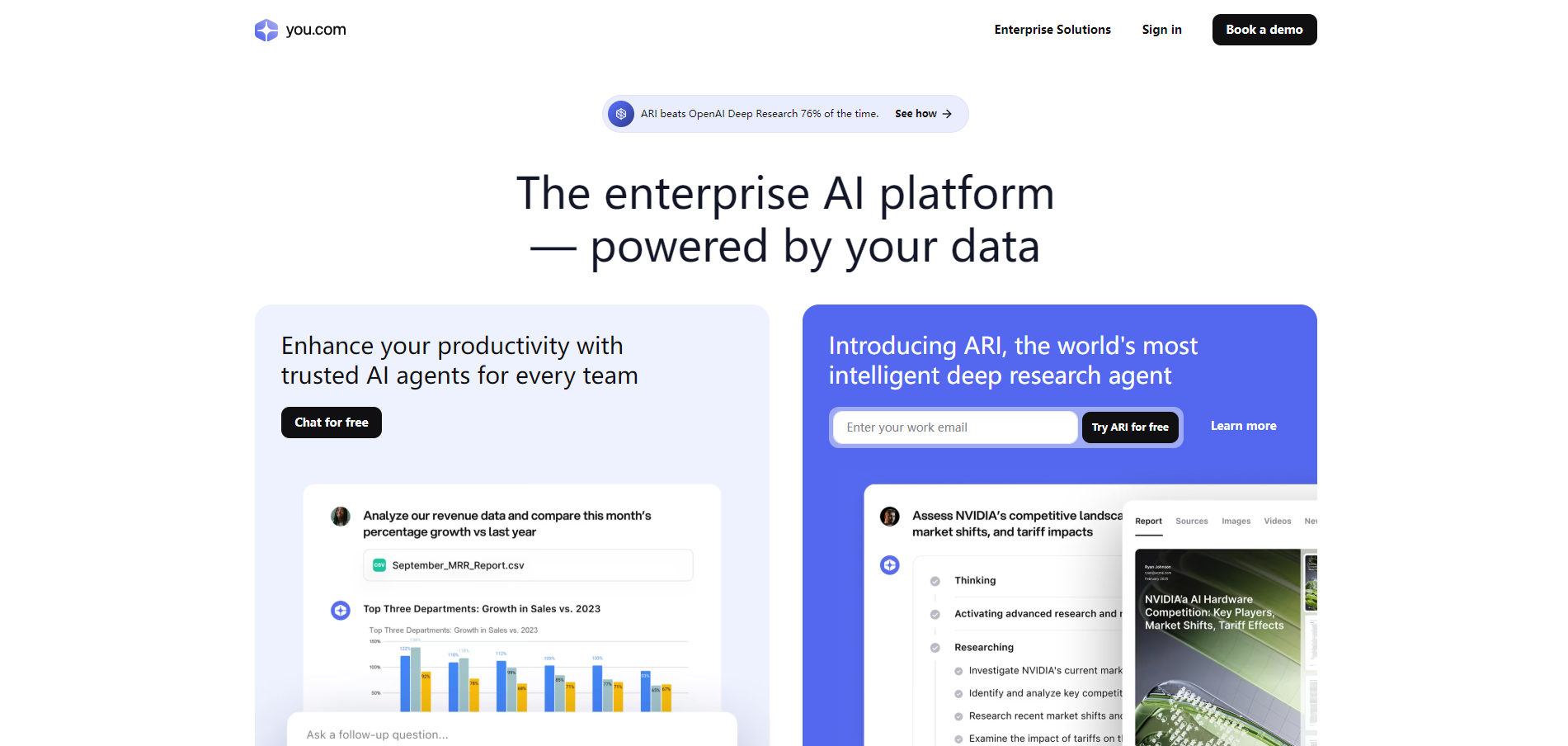首页 > You.com
17


Introducing Privacy-Focused AI Search Engines
In today's digital age, online privacy is a growing concern. Traditional search engines often track user data, collect personal information, and use this data to personalize search results and display targeted advertising. This practice raises concerns about data security, privacy violations, and the potential for algorithmic bias. Privacy-focused AI search engines offer an alternative approach, prioritizing user privacy and minimizing data collection. These search engines utilize artificial intelligence (AI) to provide relevant search results while protecting user privacy and avoiding the pitfalls of traditional search engines. They represent a growing movement towards a more private and user-centric online experience.
Key Features of Privacy-Respecting AI Search Engines
Privacy-respecting AI search engines are distinguished by several key features designed to protect user privacy. No Personal Data Collection is a primary characteristic, ensuring that the search engine does not track user search queries, browsing history, or other personal information. Anonymous Search Results are provided without personalization based on user data, preventing the creation of filter bubbles and algorithmic bias. End-to-End Encryption is used to protect user search queries from being intercepted by third parties. No Targeted Advertising is displayed, eliminating the incentive for data collection and personalization. Transparent Data Policies are provided, clearly outlining the search engine's data collection and usage practices. Independent Audits and Certifications are conducted to verify the search engine's privacy claims and ensure compliance with privacy regulations. Open-Source Technology is often used to promote transparency and allow for community review and scrutiny.
Benefits of Using a Privacy-Focused AI Search Engine
The benefits of using a privacy-focused AI search engine are numerous and can significantly enhance your online experience. Enhanced Privacy Protection is a primary advantage, as the search engine minimizes data collection and protects your personal information from being tracked and used for targeted advertising. Reduced Algorithmic Bias is achieved by providing anonymous search results, preventing the creation of filter bubbles and ensuring that you are exposed to a wider range of perspectives. Increased Transparency and Control are facilitated by clear data policies and the absence of hidden data collection practices. Improved Data Security is enhanced by using end-to-end encryption to protect your search queries from being intercepted. Support for a More Private Internet is provided by choosing search engines that prioritize user privacy and promote a more ethical online environment. Greater Peace of Mind is achieved by knowing that your online activities are not being tracked and used for commercial purposes.
Considerations When Choosing a Privacy-Respecting AI Search Engine
When choosing a privacy-respecting AI search engine, several factors should be taken into consideration. Search Result Quality is important, as the search engine should provide relevant and accurate results that meet your needs. Feature Set should be evaluated, ensuring that the search engine offers the features you require, such as image search, map search, or news search. User Interface and Experience should be considered, choosing a search engine that is easy to use and navigate. Data Policy Transparency is crucial, carefully reviewing the search engine's data policy to understand its data collection and usage practices. Reputation and Trustworthiness should be assessed, choosing a search engine with a proven track record of protecting user privacy. By carefully considering these factors, you can choose a privacy-focused AI search engine that provides you with a superior online experience while protecting your privacy and promoting a more ethical internet.
